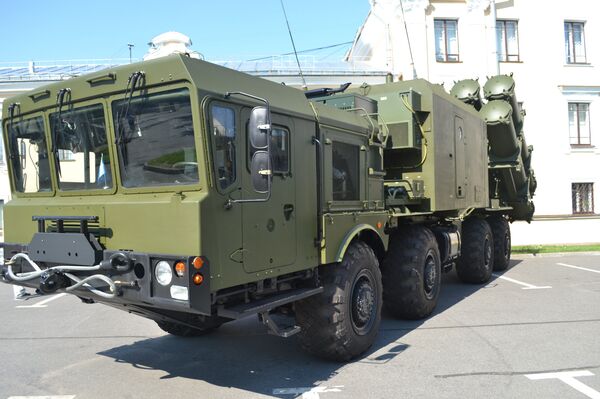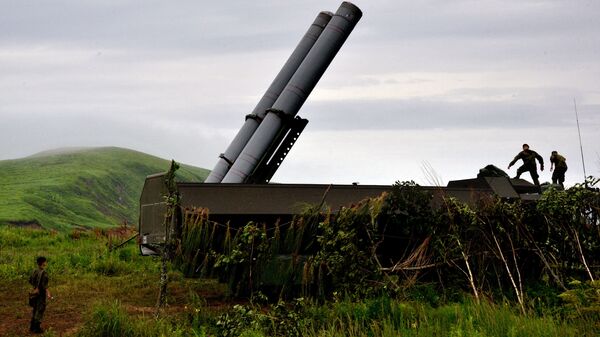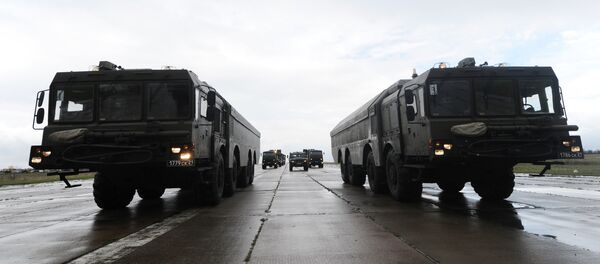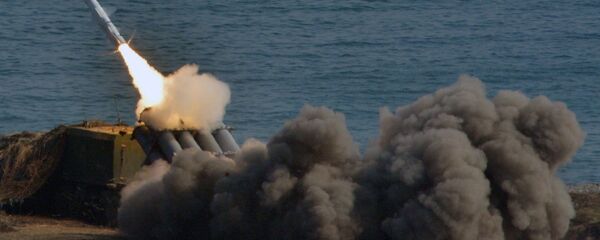On Friday, Japanese Chief Cabinet Secretary Yoshihide Suga protested to Moscow over the deployment of missile systems to the southern Kuril Islands.
Earlier in the week, Russia deployed the Bal mobile anti-ship missile system on Kunashir Island and installed the Bastion missile system on Iturup Island.

"We have expressed our strong protest, saying that it is unacceptable," Suga told reporters at a briefing, adding that the protest was lodged through diplomatic channels on Thursday.
Also on Thursday, Russian Foreign Ministry Spokesperson Maria Zakharova commented on the issue. When asked what impact the deployment of the anti-ship missile systems on the Kuril Islands could have on the upcoming talks between Russian Foreign Minister Sergei Lavrov and his Japanese counterpart Fumio Kishida in Moscow on December 3, she was firm to reply:
"The Bastion systems have been deployed on the South Kuril Islands as part of the Russian defense plans aimed at the gradual strengthening of national security. It was in keeping with this policy that these coastal missile systems have been deployed on the South Kuril Islands, which are an integral part of the Russian territory."
"The southern Kuril Islands are Russian territory. Russia has every right to deploy whatever it deems necessary on its own territory. It is its sovereign right," he told RT.
However other experts suggest that the move, which comes ahead of the visit of Russian President Putin to Japan in mid-December, indicates a certain reinforcement of Russia's negotiating position with Tokyo.
It might signify that Russia regards the islands its own territory and has no intention to cede.
"Ahead of such events [the presidential trip to Japan], it won't hurt to affirm the sovereignty," Alexei Plotnikov, a Professor at Russia's Higher School of Economics told RT.
Meanwhile Viktor Pavlyatenko, senior fellow at the Center for Japanese Studies, told Radio Sputnik that there is little reason for Asian powers, Japan included, to be concerned about Bastion and Bal's deployment, given that such plans had been made public a long time ago.
"Why was such a fuss raised about this just now?" the expert asked. "After all, the decision on improving the security of our eastern borders was taken a year ago, and was officially announced at that time. And the deployment of coastal missile systems to the islands is part of an overall strategy of rearmament of the Russian military and the strengthening of its defensive capabilities," adopted even earlier, in 2011. Before that, "since the 1990s and to the present, practically no advanced weapons were deployed on the islands."
"Japan's reaction was negative from the very start. They clearly understood that there will be no negotiation over at least these two particular islands. The deployment however won't affect our plans to sign the peace treaty," he told Sputnik.
The expert further elaborated that President Putin suggested signing the peace treaty however warned against any hurry.
"This is politics and each side pursues its own national interest. If Japan starts talking about any imaginary "Russian threat," any talks about the peace treaty will be postponed. And Japanese authorities clearly understand it," he said.
Moreover, Pavlyatenko stressed that "the missile systems in question are defensive; they cannot be converted into offensive weapons."



